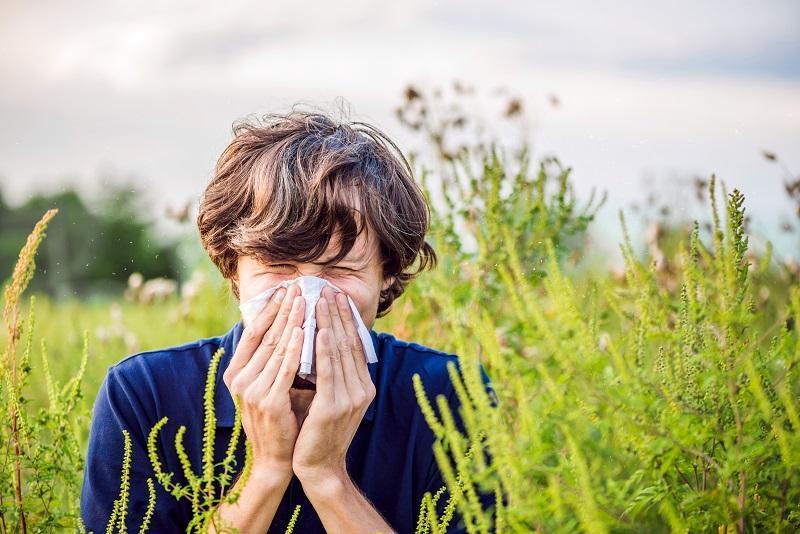Seasonal Allergies: Understanding and Managing Hay Fever
Seasonal Allergies: Understanding and Managing Hay Fever
Seasonal allergies, commonly known as hay fever or allergic rhinitis, affect a significant portion of the population, causing discomfort and disrupting daily life. As allergens such as pollen circulate in the air, individuals with hay fever experience symptoms like sneezing, congestion, itchy eyes, and a runny nose. In this article, we will explore the world of seasonal allergies, including common triggers, symptoms, diagnosis, and effective strategies for managing and minimizing the impact of hay fever. Join us as we delve into the field of allergology and uncover practical approaches to help you breathe easier during allergy season.
Understanding Seasonal Allergies: Unveiling the Culprits:
Seasonal allergies occur when the immune system overreacts to certain environmental allergens, primarily pollen from trees, grasses, and weeds. Key points to understand about seasonal allergies include:
- Pollen Triggers: Different plants release pollen at specific times of the year, leading to seasonal variations in allergy symptoms. Common triggers include tree pollen in spring, grass pollen in summer, and weed pollen in fall.
- Cross-Reactivity: Some individuals with seasonal allergies may also experience cross-reactivity to certain foods, such as oral allergy syndrome, where the immune system recognizes similar proteins in certain fruits and vegetables.
- Indoor Allergens: While seasonal allergies are primarily triggered by outdoor allergens, indoor allergens such as dust mites, pet dander, and mold can exacerbate symptoms year-round.
Recognizing Symptoms and Seeking Diagnosis:
Symptoms of seasonal allergies can vary from mild to severe and significantly impact daily life. Recognizing these symptoms and seeking a proper diagnosis is crucial. Common hay fever symptoms include:
- Sneezing: Frequent and repetitive sneezing spells.
- Nasal Congestion: Stuffy or blocked nose, making it difficult to breathe through the nostrils.
- Runny Nose: Excessive nasal discharge, typically clear and watery.
- Itchy and Watery Eyes: Persistent itching, redness, and excessive tearing of the eyes.
- Itchy Throat and Ears: Irritation or itching sensation in the throat and ears.
- Fatigue: Feeling tired and low in energy due to disrupted sleep caused by hay fever symptoms.
If you suspect seasonal allergies, it is advisable to consult with an allergist or immunologist for a comprehensive evaluation. They may perform allergy testing, such as skin prick tests or blood tests, to identify specific allergens triggering your symptoms.
Effective Strategies for Managing Hay Fever:
While complete avoidance of allergens may not always be possible, there are practical strategies to manage and minimize hay fever symptoms:
- Monitor Pollen Counts: Stay informed about local pollen forecasts, and limit outdoor activities on high-pollen days, especially during peak pollen times.
- Create an Allergy-Free Home Environment: Keep windows closed, use air purifiers with HEPA filters, regularly clean and vacuum your living spaces, and minimize exposure to indoor allergens like dust mites and pet dander.
- Nasal Irrigation: Use saline nasal rinses or sprays to flush out allergens and clear nasal passages.
- Medications: Over-the-counter antihistamines, nasal corticosteroids, and decongestants can help alleviate hay fever symptoms. Consult with your healthcare provider for appropriate medication options.
- Immunotherapy: For severe or persistent hay fever, allergen immunotherapy (allergy shots) may be recommended. This treatment gradually desensitizes the immune system to specific allergens, reducing the severity of symptoms over time.
- Allergy Action Plan: Work with your healthcare provider to develop an allergy action plan that outlines steps to manage and respond to hay fever symptoms effectively.
Lifestyle Adjustments and Self-Care:
In addition to medical management, adopting certain lifestyle adjustments and self-care practices can further enhance your ability to cope with hay fever:
- Shower and Change Clothes: After spending time outdoors, shower to remove pollen from your hair and body, and change into fresh clothing.
- Wear Sunglasses and Hats: Protect your eyes and face from direct pollen exposure by wearing sunglasses and wide-brimmed hats when outdoors.
- Limit Exposure During Peak Times: Minimize outdoor activities during early morning and evening hours when pollen counts are typically higher.
- Keep Windows Closed: During peak pollen seasons, keep windows and doors closed to prevent pollen from entering your living spaces.
- Avoid Line-Drying Clothes: Pollen can stick to clothes when drying outdoors, so consider using a clothes dryer during allergy season.
Hay fever can be a challenging condition, but with a comprehensive understanding of seasonal allergies and effective management strategies, you can minimize the impact of allergens on your daily life. By recognizing common triggers, seeking proper diagnosis, implementing environmental controls, using medications as needed, and adopting lifestyle adjustments, you can alleviate hay fever symptoms and enjoy the beauty of each season with greater comfort and ease. Let us take charge of our allergies and breathe freely, embracing the outdoors without the burden of hay fever symptoms.
Be the first to post a message!
